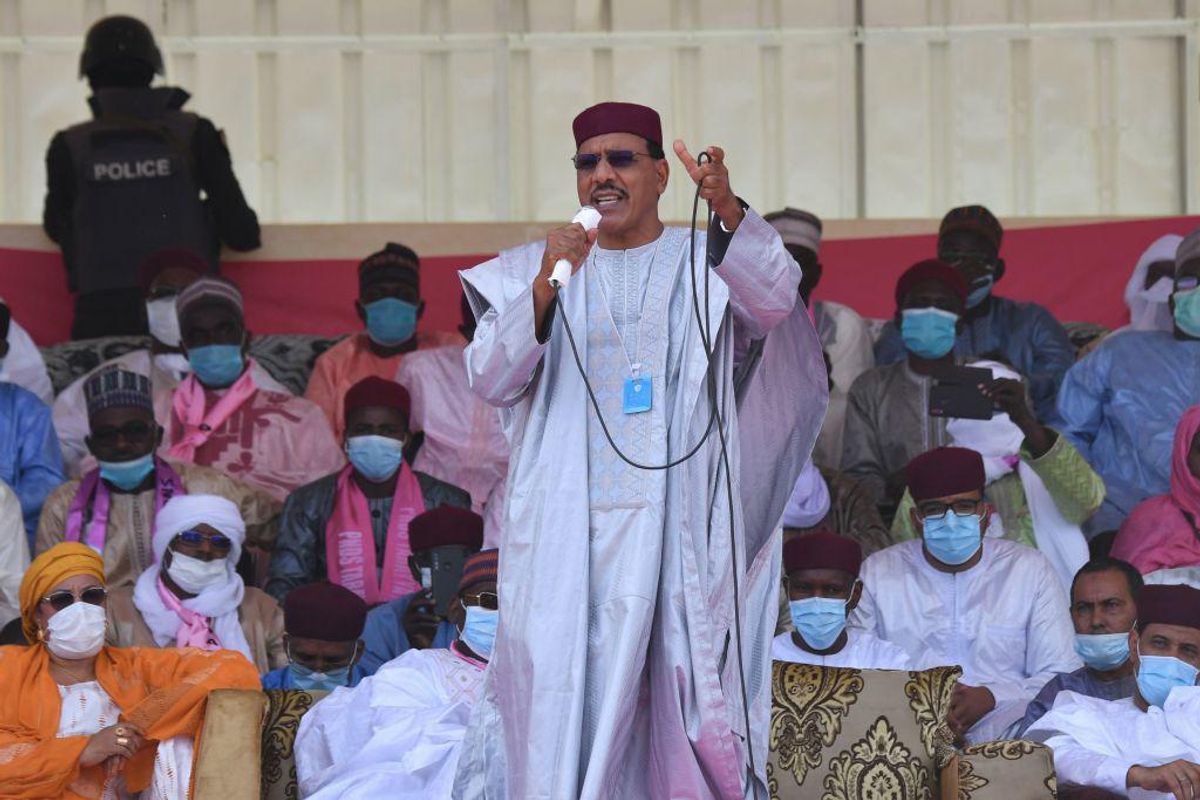Niger's Presidential Election Plagued by Increasing Violence
Niger's presidential election is set for a second race in February following the presidential candidates' failure to secure a majority vote in the recent results.

Presidential candidate for the Nigerien Party for Democracy and Socialism (PDNS) Mohamed Bazoum gives a speech during a campaign rallye in Diffa on December 23, 2020, ahead of Niger's December 27 presidential and legislatives elections.
Niger has reportedly announced that the country will have to run presidential elections again in February, according to Aljazeera. This follows after Niger's election commission released provisional results this past Saturday which revealed that neither of the two presidential candidates had secured a majority vote. The country was set to start off the year with a new president after it held its presidential elections on December 27th of last year.
Read: Cameroon Commences Regional Elections Amidst Opposition Party Boycott
According to France24, Niger's 2020 presidential elections had two main contenders: former president Mahamane Ousmane and Niger's ruling party candidate Mohamed Bazoum. Niger's election requirements for a presidential win are set at 50 percent of the total vote. Bazoum received approximately 39 percent of the vote while Ousmane managed to secure approximately 17 percent. More than a third of Nigeriens were reportedly expected to vote in the elections despite rising Jihadist and Boko Haram attacks in vulnerable communities. Coincidentally, Aljazeera reports that the election result announcement was followed by an attack in various small regions in Nigeria.
The Nigerien constitutional court is reportedly set to verify the voter count and a presidential runoff between the candidates is set to take place on February 21st. This is the first presidential democratic transition for Niger which has experienced difficult presidential transitions with each preceding president having been removed by a coup. Incumbent President Mahamadou Issoufou has decided to step down after serving two five-year presidential terms. Issoufou was also Prime Minister during Ousmane's brief presidential rule between 1993 to 1996.
According to Alljazeera, political analysts have expressed fears of voter fatigue but are also optimistic for the February election. Hopes are that the incoming president will end the continued jihadist attacks which have killed hundreds of people and caused over 500 000 to become refugees, according to the United Nations.
- Here Are 5 Things You Should Know About the Niger Delta Avengers ›
- The #OneFarm Campaign Is Dedicated To Restore the Niger Delta ... ›
- Flooding In Niger Has Forced Hundreds of People to Leave Their ... ›
- Former Niger President Mamadou Tandja Has Died - OkayAfrica ›
- The Met's New Exhibition Celebrates the Rich Artistic History of the ... ›
- Niger's Election Officials Killed During Voting in Presidential Elections - OkayAfrica ›
- Mozambique: Report Reveal Rescue Efforts Have Been Racist - OkayAfrica ›
- Soldiers Announce Coup in Niger, Remove President from Power - Okayplayer ›
- Deposed Niger President Faces Treason Trial as Coup Leaders Take Legal Action - Okayplayer ›

